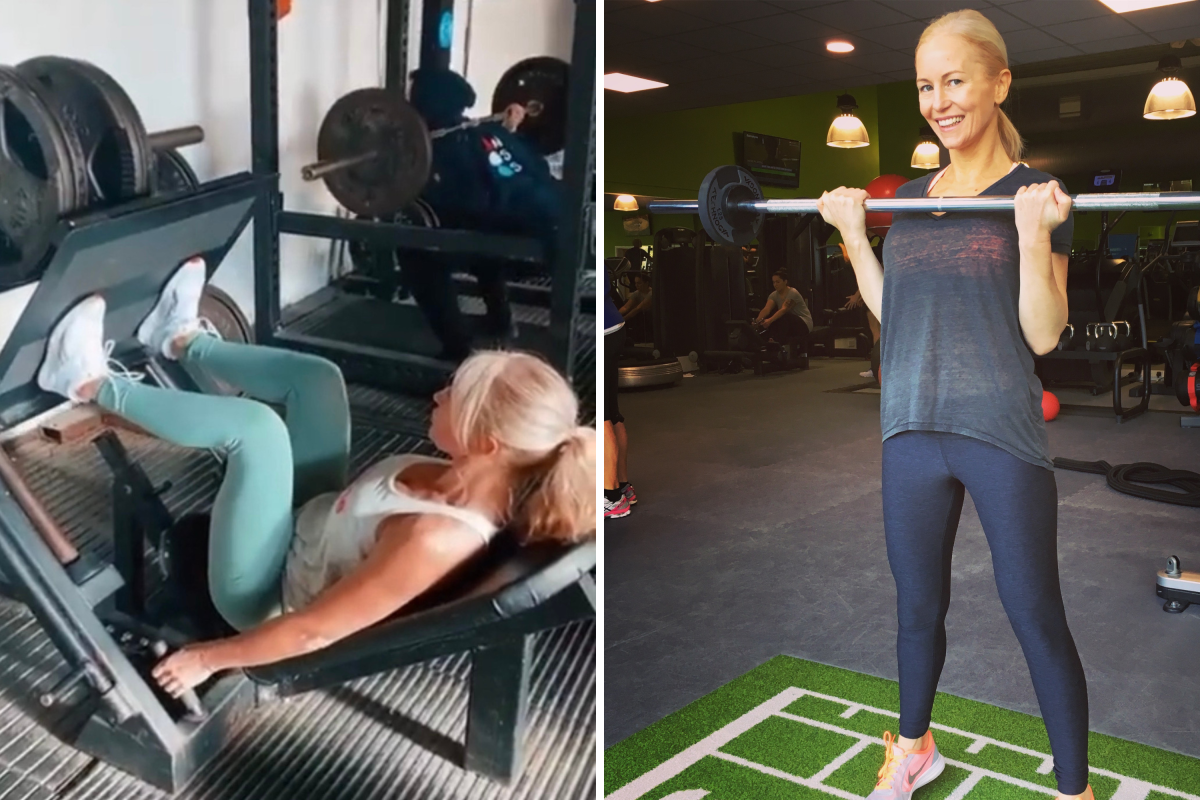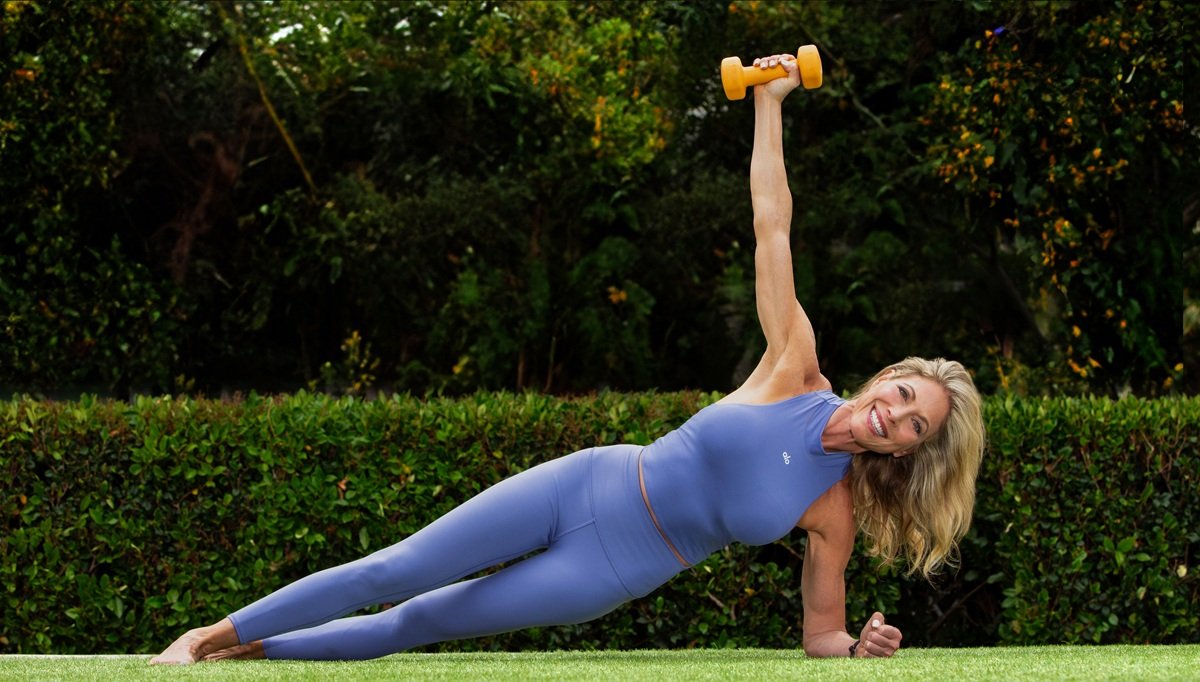Fitness enthusiasts often emphasize that relying solely on motivation isn't enough when it comes to exercising, urging the importance of discipline. Yet, even with the best intentions, completing a workout can sometimes be challenging, leading many to seek additional support from a professional. However, with advancements in technology and artificial intelligence, gym-goers now have access to personalized fitness plans at a fraction of the cost of hiring a personal trainer.
Newsweek discusses the future of fitness with Jill Brown, a Los Angeles-based certified functional fitness & nutrition expert coach, and Anna Maria Kalebic, 53, who experimented with an AI-powered fitness app for 12 weeks to explore whether AI could replace personal trainers.

Kalebic, a mother of three, told Newsweek that she hit a wall during the summer, becoming bored with her usual gym routine. So, she signed up for an AI-generated fitness app, which offered a 12-week fitness plan for just over $13 per month. In comparison, personal trainer sessions typically range from $50 to $100 per hour, while Brown, who has three decades of experience, charges between $135 and $200.
Kalebic, from England, reviewed the app positively and shared her experience on TikTok in a non-sponsored post, encouraging others to give it a try. In the video shared on @annamariakalebic, she is notably excited while walking home from the gym, describing the app as "amazing" and praising it for giving it the extra push she needed.
She concludes the clip by saying, "It revitalised my gym-going."
Kalebic's Experience with AI

"At 53, it's so important to stay fit during menopause," she told Newsweek. "I'm passionate about strength training, but the repetitiveness can get boring, which is why I gave AI a try.
"At first, I had a male trainer, but he had me doing chin-ups, so I switched to a female bot. It's very clever, with a virtual person jumping around the screen. I liked that it offered different workouts with video demonstrations."
Kalebic, who has previously trained with both online and in-person coaches, praised the app for keeping things fresh but missed the social interaction.
"AI can't replace the accountability you get from a personal trainer," she said, adding that a personal trainer can check your form and ensure you're doing exercises correctly.
Overall, Kalebic believes AI apps are best for someone who already knows the ropes and wants to keep things interesting.
"I wouldn't want AI to replace people in the profession because they keep you more motivated," she said. "I don't think personal trainers should worry about AI taking their jobs. I believe they'll always be needed, as some people don't have the willpower to work out alone. They need that human interaction to help them through it and feel great afterward."
AI Isn't a Threat Just Yet

Indeed, it doesn't seem like fitness coaches are going anywhere anytime soon. In 2023, there were over 350,000 trainers and instructors in the U.S., according to the Bureau of Labor Statistics, and this number is projected to grow by 14 percent from 2023 to 2033—much faster than the average for all occupations.
While Brown is confident her job isn't at risk, she admits to having some concerns for the future.
"If AI keeps getting better, people will have access to some of the best training programs available. This is what scares the Lycra out of us," she told Newsweek. "Not to mention the cost benefit."
In November 2023, a Pew Research Center survey found that 52 percent of Americans are more concerned than excited about AI in daily life. Brown said she feels "somewhat" concerned about its potential impact on coaches' roles.
She told Newsweek: "Fitness should be accessible to everyone. That's always been a primary goal of the industry. We want everyone to embrace fitness and exercise.
"My feeling is the shiny new toy syndrome of AI training will eventually wear off as too many products hit the market, giving people too many options. Then humans will realize the importance of having a real person for accountability, motivation, and expert guidance."
Fitness Isn't Just About Exercise
Brown, who has extensive knowledge, explained that her job isn't solely about fitness. She also offers clients a safe space to vent about life.
"You can't talk to your AI trainer about your breakup, your work stress, the outfit you're going to wear to a party, or politics. This is a huge part of in-person training and even nutrition coaching," she said.
While using an AI app may be more affordable and convenient, Brown warned that it could also make it easier to slack off.
"The user needs to pick up their device, log on, and start the workout... maybe even drive to the gym first. That's the friction point. But when a trainer shows up at your door at 6 a.m. and you decide to hit snooze, you still get charged. That real-life accountability is not something I see AI trainers solving," she told Newsweek.
Brown, who has 30,000 followers on Instagram (@jillbrownfitness), believes young trainers will face the biggest challenges.
"They're marketing to a demographic that's used to tech-enabled everything. AI training is more affordable for Gen Z and Alpha, but even here, carving out a niche will be necessary. AI developers likely aren't targeting niche markets, as that would be less profitable for a subscription. But I could be wrong."
Is there a health issue that's worrying you? Let us know via health@newsweek.com. We can ask experts for advice, and your story could be featured on Newsweek.




















 English (US) ·
English (US) ·